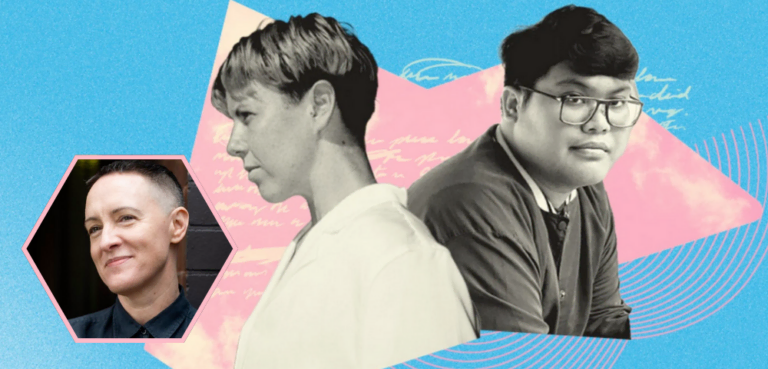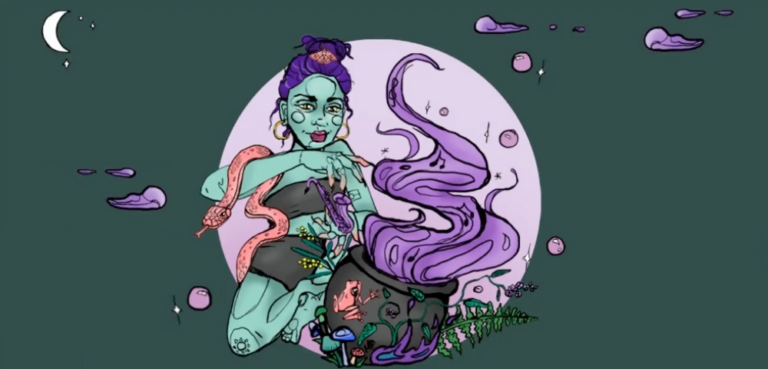
Open minds, open hearts
Judging the book by its cover, Irshad Manji’s The Trouble With Islam could easily be mistaken for a polemic by some non-Muslim fanatic, someone finally able to legitimately publish Islamaphobia with post-9/11 impunity.
At coffee with Manji she expresses little surprise at this observation. Criticism of Islam either comes from outside the faith or nowhere at all, which Manji thinks is a big problem.
Even moderate Muslims, according to Manji, have become automatons in the name of Allah. The faith’s deeply rooted anti-Semitism, a dependence on literal translations of the Koran and the disempowerment of Muslim women have led Manji to declare that totalitarian impulses lurk in mainstream Islam.
How did this happen, when other religions (such as Judaism and Christianity) retain varying levels of self-analysis and questioning?
Let me backtrack, Manji says with a smile. The golden age of Islam was roughly between the ninth and 11th centuries and during this time Islam embraced the idea of ijtihad -“ Islam’s lost tradition of independent thinking and independent reasoning -¦
Scholars in Muslim Spain would teach their students to abandon -˜expert opinion’ if their own conversations with the ambiguous Koran came up with better evidence for their ideas -¦ Towards the end of the 11th century, the gates of ijtihad were deliberately slammed shut for political reasons -¦
This led not just to a pretty rigid reading of the Koran, but also to a series of legal opinions that we would now call fatwas, that scholars could no longer overturn or even question, but now, on pain of execution, only imitate, she says. It’s really the triumph of imitation over innovation that has contributed in great measure to the intellectual crisis in which Islam finds itself now.
The rigidity continued for a thousand years. It was in place when a teenage Manji asked why she was not allowed to lead prayer at her madressa (Islamic religious school) in Toronto. It prompted her to seek out an English translation of the Koran, which she discovered was as contradictory as most other sacred texts.
Yet she remained a Muslim, even when as an adult she found herself hosting Canada’s QueerTelevision program -“ and being an out lesbian. Then came 11 September 2001, which Manji said has made things less difficult, but not necessarily easier.
The reality is that spaces have been created as a result of the general public’s interest in Islam now. Spaces have been created within the Muslim community to begin having discussions, dialogues and even debates about these issues, she says.
Manji’s optimism is driven by changes she insists are happening right now. Her website www.muslim-refusenik.com attracts 50 percent of supportive emails (as opposed to 20 percent some years ago) and her ongoing Project Ijtihad means Arabic and Urdu translations of her book will be available on the site by the end of the year. She also plans to open The Institute For Independent Thinking In Islam in the next five years.
Up until this point, Manji appears to be that particular interview subject who is cheerfully but unflappably in control. (Responses from her Enough Rope interview appear almost verbatim in her book, for example).
But when asked whether the hostility and threat of violence ever takes its toll, her shoulders drop -¦ just a little.
There was a time, not so long ago, when I had to bury my face in my hands and have a good cry. And beseech my Creator to give me the maturity to deal with the hostility that comes my way, she said. I’m less influenced by that hostility now -“ I think in part because I really am maturing into the world…
Michelle [Irshad’s girlfriend of six years] is dealing with it brilliantly. When we got together six years ago, it’s not like she signed up for a relationship which would require bullet-proof windows and a state-of-the-art security system at home.
But she’s the woman who in the late 80s got kicked out of the Canadian military for being a lesbian. She sued and she won and her case single-handedly overturned the ban on gays and lesbians serving openly in the Canadian military -¦ I bring this up because Michelle knows the value of fighting the good fight.
They are both, it seems, classic refuseniks. It’s a term Manji adopted some years ago, a reference to the original refusenik Soviet Jews who championed religious and personal freedom.
Manji’s refusal is a determination not to be silent.
It seems to me, therefore, that anybody, Muslim or non-Muslim, who has an interest in seeing the liberal reformation of Islam get under way, also has a personal interest in stepping up to the plate and asking questions out loud.
For a full transcript of Tim Benzie’s interview with Irshad Manji click here.









